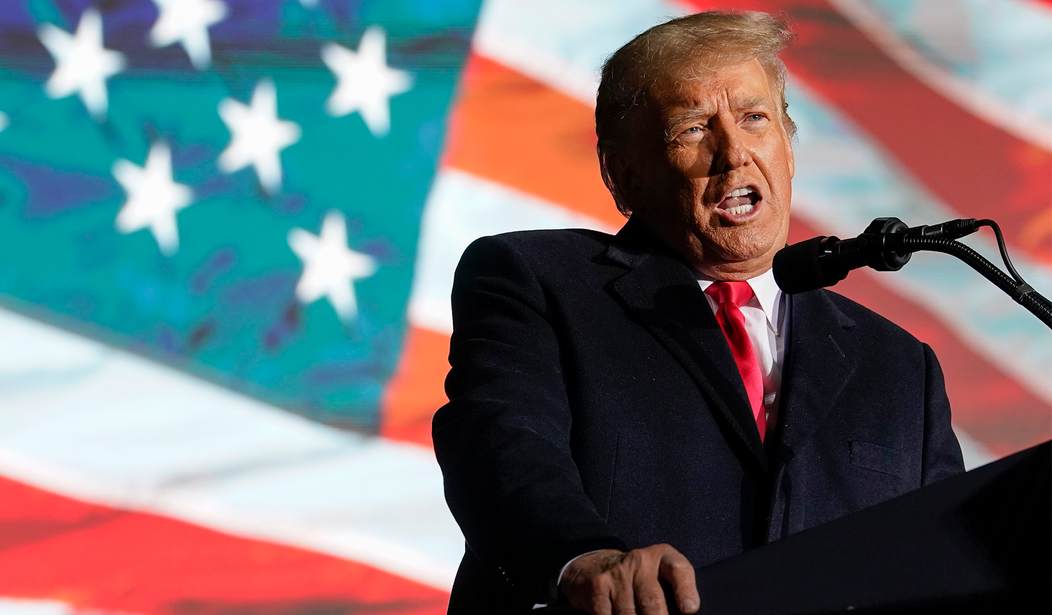On Monday, the partisan January 6 committee declared that it would refer former President Donald Trump—and others they claim are culpable for the Capitol riot—to the Department of Justice for criminal prosecution.
This was hardly surprising. The entire purpose of the J6 Committee was not a legitimate investigation of the events of that day but rather a taxpayer-funded partisan witchhunt with the sole intention of preventing Trump from becoming president again.
Outgoing Rep. Liz Cheney (R-Wyo.) admitted it earlier this year when she said, “the single most important thing, though, is to ensure that Donald Trump is not the Republican nominee and that he certainly is not anywhere close to the Oval Office ever again.”
The only way to do that would be for him to be charged and convicted of inciting or giving aid or comfort in a “rebellion or insurrection against the authority of the United States,” which their criminal referral recommends he be charged with. This was always the endgame of the committee. That’s why Pelosi stacked it with only Democrats and two anti-Trump Republicans.
That’s also why Trump laughed off the criminal referral.
“These folks don’t get it that when they come after me, people who love freedom rally around me. It strengthens me. What doesn’t kill me makes me stronger,” Trump wrote in a post on Truth Social. “Americans know that I pushed for 20,000 troops to prevent violence on Jan 6, and that I went on television and told everyone to go home… The people understand that the Democratic Bureau of Investigation, the DBI, are out to keep me from running for president because they know I’ll win and that this whole business of prosecuting me is just like impeachment was — a partisan attempt to sideline me and the Republican Party.”
Trump continued, “The Fake charges made by the highly partisan Unselect Committee of January 6th have already been submitted, prosecuted, and tried in the form of Impeachment Hoax # 2. I WON convincingly. Double Jeopardy anyone!”
The evidence against Trump was so weak that various text messages released by the committee actually exonerated him, and the committee even doctored text messages to make them look incriminating when they weren’t.
The committee’s criminal referral is not legally binding. Attorney General Merrick Garland and the Justice Department will ultimately decide whether or not to pursue the charges. It is unlikely that the DOJ will be influenced by the referral.
“I’m sure the Attorney General will welcome any new evidence the committee sends over, but the authority to indict rests with the executive branch, not Congress,” University of Baltimore Law School Dean Ronald Weich, a former DOJ liaison to Congress, told Politico. “The decision of whether to bring criminal charges is solely within the purview of the Justice Department. I expect DOJ to respond courteously to the committee, but the referral will not change the outcome.”










Join the conversation as a VIP Member